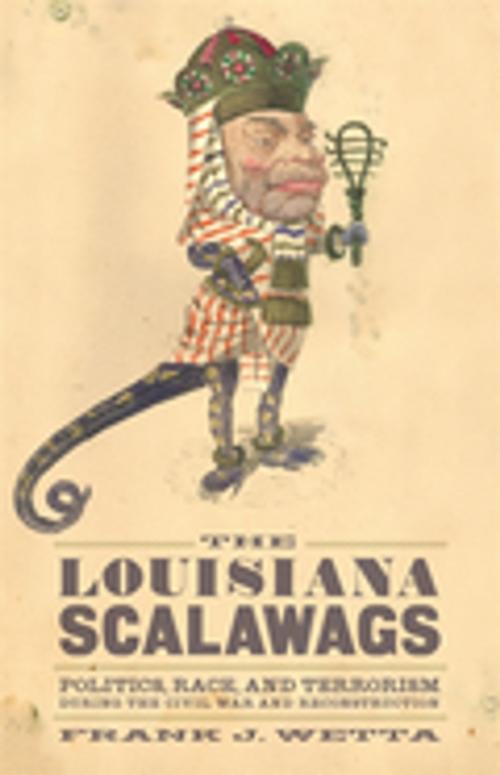The Louisiana Scalawags
Politics, Race, and Terrorism during the Civil War and Reconstruction
Nonfiction, History, Americas, United States, Civil War Period (1850-1877), Social & Cultural Studies, Social Science| Author: | Frank J. Wetta | ISBN: | 9780807147481 |
| Publisher: | LSU Press | Publication: | January 2, 2013 |
| Imprint: | LSU Press | Language: | English |
| Author: | Frank J. Wetta |
| ISBN: | 9780807147481 |
| Publisher: | LSU Press |
| Publication: | January 2, 2013 |
| Imprint: | LSU Press |
| Language: | English |
During the Civil War and Reconstruction, the pejorative term "scalawag" referred to white southerners loyal to the Republican Party. With the onset of the federal occupation of New Orleans in 1862, scalawags challenged the restoration of the antebellum political and social orders. Derided as opportunists, uneducated "poor white trash," Union sympathizers, and race traitors, scalawags remain largely misunderstood even today. In The Louisiana Scalawags, Frank J. Wetta offers the first in-depth analysis of these men and their struggle over the future of Louisiana. A significant assessment of the interplay of politics, race, and terrorism during Reconstruction, this study answers an array of questions about the origin and demise of the scalawags, and debunks much of the negative mythology surrounding them.
Contrary to popular thought, the southern white Republicans counted among their ranks men of genuine accomplishment and talent. They worked in fields as varied as law, business, medicine, journalism, and planting, and many held government positions as city officials, judges, parish officeholders, and state legislators in the antebellum years. Wetta demonstrates that a strong sense of nationalism often motivated the men, no matter their origins.
Louisiana's scalawags grew most active and influential during the early stages of Reconstruction, when they led in founding the state's Republican Party. The vast majority of white Louisianans, however, rejected the scalawags' appeal to form an alliance with the freedmen in a biracial political party. Eventually, the influence of the scalawags succumbed to persistent terrorism, corruption, and competition from the white carpetbaggers and their black Republican allies. By then, the state's Republican Party consisted of white political leaders without any significant white constituency. According to Wetta, these weaknesses, as well as ineffective federal intervention in response to a Democratic Party insurgency, caused the Republican Party to collapse and Reconstruction to fail in Louisiana.
During the Civil War and Reconstruction, the pejorative term "scalawag" referred to white southerners loyal to the Republican Party. With the onset of the federal occupation of New Orleans in 1862, scalawags challenged the restoration of the antebellum political and social orders. Derided as opportunists, uneducated "poor white trash," Union sympathizers, and race traitors, scalawags remain largely misunderstood even today. In The Louisiana Scalawags, Frank J. Wetta offers the first in-depth analysis of these men and their struggle over the future of Louisiana. A significant assessment of the interplay of politics, race, and terrorism during Reconstruction, this study answers an array of questions about the origin and demise of the scalawags, and debunks much of the negative mythology surrounding them.
Contrary to popular thought, the southern white Republicans counted among their ranks men of genuine accomplishment and talent. They worked in fields as varied as law, business, medicine, journalism, and planting, and many held government positions as city officials, judges, parish officeholders, and state legislators in the antebellum years. Wetta demonstrates that a strong sense of nationalism often motivated the men, no matter their origins.
Louisiana's scalawags grew most active and influential during the early stages of Reconstruction, when they led in founding the state's Republican Party. The vast majority of white Louisianans, however, rejected the scalawags' appeal to form an alliance with the freedmen in a biracial political party. Eventually, the influence of the scalawags succumbed to persistent terrorism, corruption, and competition from the white carpetbaggers and their black Republican allies. By then, the state's Republican Party consisted of white political leaders without any significant white constituency. According to Wetta, these weaknesses, as well as ineffective federal intervention in response to a Democratic Party insurgency, caused the Republican Party to collapse and Reconstruction to fail in Louisiana.















